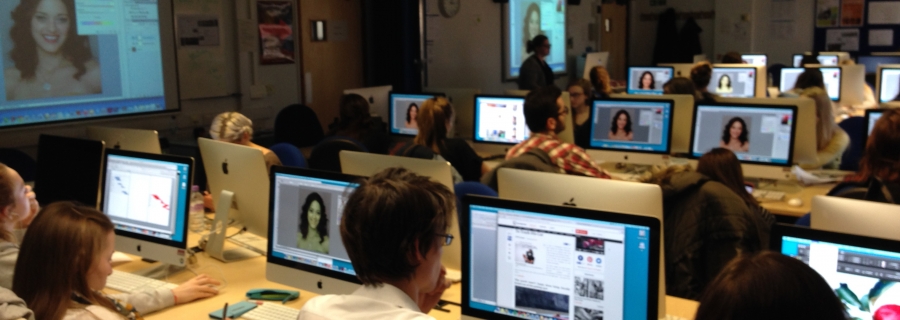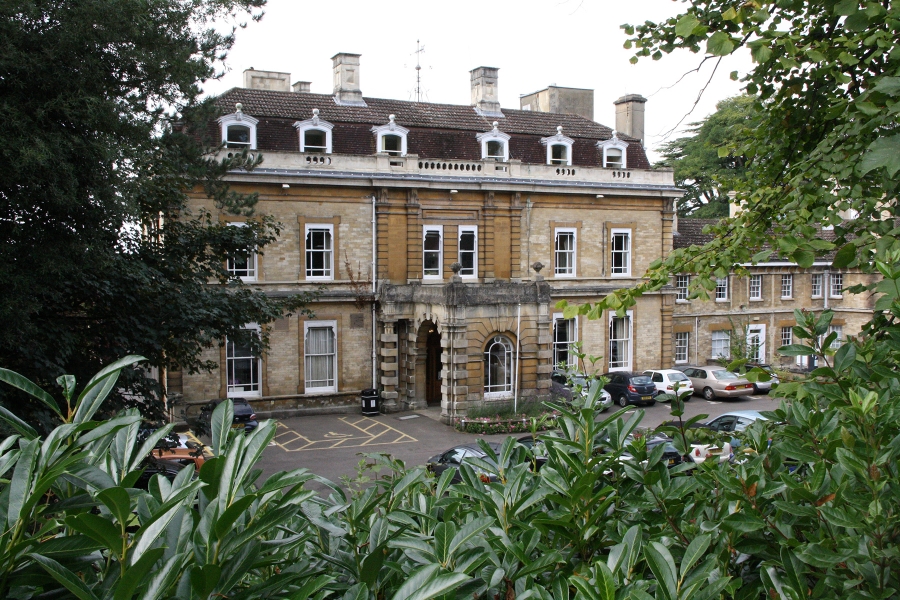Media, Journalism and Publishing
What’s so special about the Oxford International Centre for Publishing?
Your Frequently Asked Questions
The Media, Journalism and Publishing programme is located within the Oxford International Centre for Publishing (OICP), a recognized brand within media education as reflected in its standing in university league tables. We use the centre name to promote our activities to a variety of external audiences and the OICP has a reputation for innovation and excellence in teaching and research. The Centre has extensive industry links and carries out professional development programmes and consultancy. It has also a network of international links that facilitate a range of opportunities from exchange semesters and language learning to international collaboration on projects. For example, in your second year you could go on exchange to our partner universities in Amsterdam or Stuttgart, or to universities in the USA or Australia.
The Centre is based in the beautiful city of Oxford, the home of global media companies and many media professionals in journalism and publishing. The city has more published writers per square mile than anywhere else in the world, and has been home to a host of famous authors from Tolkien and C. S. Lewis to Philip Pullman and Mark Haddon.
On the web pages for OICP you will find podcasts, an alumni page with news of our graduates and their careers in the industry, the latest news about our events and activities, information about our research and consultancy, and listings of work experience and job vacancies in the publishing industry.
Where does Oxford Brookes feature in the rankings?
The 2020 university league table from the Guardian ranked us at at number one in the category Journalism, Publishing and Public Relations (number two in 2015 and 2016, and number three in 2018); the 2023 Guide ranked us as number two in the Journalism category. The 2013 Sunday Times University Guide ranked us as number one across all British universities in the category of Communications and Information Studies.
The 2022 National Student Survey highlights the excellent standard of the publishing programmes at Oxford Brookes. The overall satisfaction figure was 85.7 per cent, with a score of 91.7 per cent for the quality of teaching on the programme; 100 per cent thought that the course is intellectually stimulating.
Do I need particular A-Level subjects to get on to our course?
No. If you are joining us through a school or FE A-Level route you do need good grades to be accepted, but we do not normally ask you to have taken A-Levels in specific subjects such as English. Indeed, we welcome the variety of backgrounds that different subjects bring. So, just to take a few examples: English, Maths, Psychology, Drama, Physics, Music, Geography and Fine Art are all equally suitable. You will need Maths and English at GCSE.
Will I be interviewed?
Nearly always, yes. We try to interview all applicants, and will ask you to come in and talk to us on a mutually agreed date. The interview is designed so that we can get to know each other, and does not include formal tests, trick questions or unfair techniques. Most students say after interview that they enjoyed the experience and were very glad they came.
I’m not sure what media, journalism and publishing covers
Your study is grounded in up-to-date knowledge of the media, taught by experienced professionals and researchers. The curriculum develops from a foundation of theory and skills, such as in editorial, design, video, and marketing, and towards a focus on industry sectors and professional practice. The programme offers a local, national and international context for your studies, alongside an understanding of the cultural importance of the media. There are regular field trips to industry organizations, events, newsrooms and editorial environments. Throughout the programme you will be working with your peers in teams, supporting one another and developing sophisticated team-working, communication, and problem-solving skills. At the same time you will accumulate skills in academic research and analytical thinking. You will have access to a dedicated IT suite with industry standard software such as Adobe Creative Suite, and use collaborative software tools such as Omnibook.
There are two pathways for the programme: journalism and book publishing. Students are free to follow one or to keep their degree as broad as possible.
Do you see the media from an international perspective?
Most definitely. We run a range of international trips and students have recently visited Amsterdam for Dutch Book Week and the international book fair in Beijing. Internationalization of the degree includes modules in international publishing and Chinese language and culture.
What do your students want to do when they leave?
Our undergraduates look for opportunities in all kinds of fields, as well as further academic or professional study such as an MA with us. Our graduates can be found in all areas of the media. Graduates have developed their careers in journalism, PR, book publishing, magazines, advertising, charities, the arts and other organizations involved in media and communication.
Do look at the alumni page on our website, which has profiles of our graduates.
Will the degree help to get me a job?
OICP is known both nationally and internationally – it is a very strong ‘brand’. This means that if you seek a position in publishing, journalism or another similar media role your potential employer knows what they are getting, and this usually offers a significant advantage. The publisher can feel confident that you already have a good understanding of the industry when you start work, and this helps with rapid career progression as well as in getting your first job.
Employers post real jobs and work experience opportunities on our website.
Is the publishing department conveniently located at Oxford Brookes?
The department is based in Headington Hill Hall, a building that commands marvellous views over Oxford. It was built in 1824. We also have a new, purpose-built IT suite with publishing-specific software. The Headington Library at Oxford Brookes has an extensive range of books, print and electronic journals and databases related to publishing, and special collections including the Booker Prize Archive, the André Deutsch collection and the African Publishing Collection. All of these buildings are centrally located on the main campus.
Can I study part time?
Yes, you can. Brookes undergraduate degrees can be studied in part-time mode by taking up to five module credits a year instead of the eight normally studied by full-time students. Your part-time degree then takes about five years to complete, though some students take longer.
Will I be able to get work experience while I’m studying?
Most definitely, yes. We encourage our students from the summer of their second year to seek positions in media companies while they study, and we find placements and help to arrange this for you. We have two members of staff dedicated to this area and an extensive range of contacts in Oxford and London. Arrangements are flexible and are designed to meet different student’s needs, so the length of work experience can vary from, say, a full week, or one day every week, to a whole summer. Most opportunities will be in the Oxford region, but we also arrange positions in London and elsewhere if students prefer.
Tell me about your staff
This breadth and depth of staff, which also supports our extensive postgraduate programmes, gives us a strong advantage over similar courses elsewhere. Our permanent staff are frequently joined by guest speakers and visiting lecturers from industry and elsewhere.
Any more questions? Come and see us at a visit day or open day.





